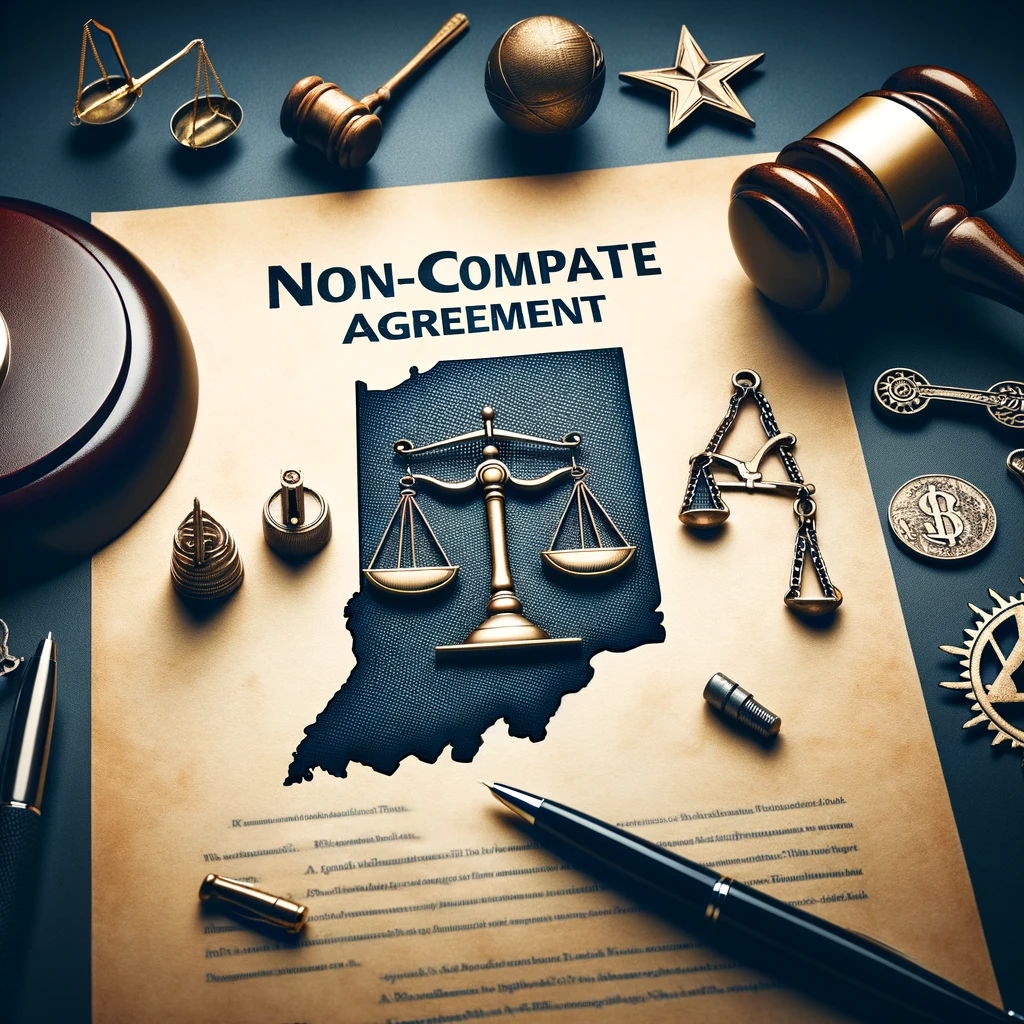Understanding Indiana's Non-Compete Laws: A Comprehensive Guide for Employers and Employees
In the competitive landscape of Indiana's business environment, non-compete agreements are a common tool used by employers to protect their interests. However, the enforceability of these agreements is subject to Indiana's legal framework, which aims to balance the interests of employers with the rights of employees. This guide provides an in-depth look at non-compete agreements in Indiana, highlighting key legal considerations, enforceability criteria, and practical advice for both employers and employees.

Overview of Non-Compete Agreements in Indiana
Non-compete agreements, also known as restrictive covenants, are contracts in which an employee agrees not to enter into competition with an employer after the employment period is over. These agreements can also restrict employees from revealing proprietary information or secrets to any other parties during or after employment.
Legal Basis for Non-Compete Agreements in Indiana
In Indiana, the enforceability of non-compete agreements is based on the reasonableness of the agreement in terms of its duration, geographical scope, and the type of employment or business interest being protected. The Indiana courts have established that for a non-compete agreement to be enforceable, it must:
Serve a legitimate business interest of the employer.
Not impose undue hardship on the employee.
Not be injurious to the public.
Further legal insights can be found on the Indiana General Assembly's website and through resources provided by Indiana University's Maurer School of Law.
Key Components of a Valid Non-Compete Agreement in Indiana
A well-drafted non-compete agreement in Indiana should clearly define the following elements:
Scope of Activities Restricted: The specific activities or sectors from which the employee is restricted.
Geographical Limitation: The geographical area where the restrictions apply.
Duration: The time period for which the restrictions are in place.
For drafting guidance, the Indiana Chamber of Commerce offers resources and templates that adhere to state laws.
Enforceability Challenges and Considerations
The enforceability of non-compete agreements in Indiana is often challenged in courts. Factors that may affect enforceability include:
The employee's access to confidential information.
The employee's unique or specialized skills.
The impact of the restriction on the employee's ability to earn a livelihood.
Recent Legal Developments
Recent rulings by Indiana courts have further clarified the application and enforceability of non-compete agreements, emphasizing the need for specificity and reasonable limitations. Staying updated on these developments is crucial for both employers and employees. Legal blogs and updates from the Indiana State Bar Association can provide timely information.
Strategies for Employers and Employees
For Employers:
Ensure non-compete agreements are tailored to each employee's role and access to sensitive information.
Regularly review and update agreements to align with current laws and business needs.
For Employees:
Understand the terms of the agreement before signing.
Consider negotiating the terms if they appear overly restrictive or broad.

Create & Review Your Contracts 10x Quality and Ease
Lawyer-level AI handles all your contract needs, with real lawyers providing safeguarding support

Conclusion
Non-compete agreements in Indiana serve as a vital tool for protecting business interests, but their enforceability depends on a variety of factors. Both employers and employees must navigate these agreements with an understanding of legal standards and court interpretations. Consulting with legal professionals and leveraging authoritative resources, such as Wikipedia for general information and .gov sites for state-specific regulations, is advisable to ensure compliance and protect individual rights.

